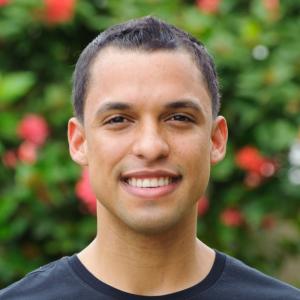Caribbean leaders appeal to “conscience of the world” at OCHA briefing on Hurricane Beryl
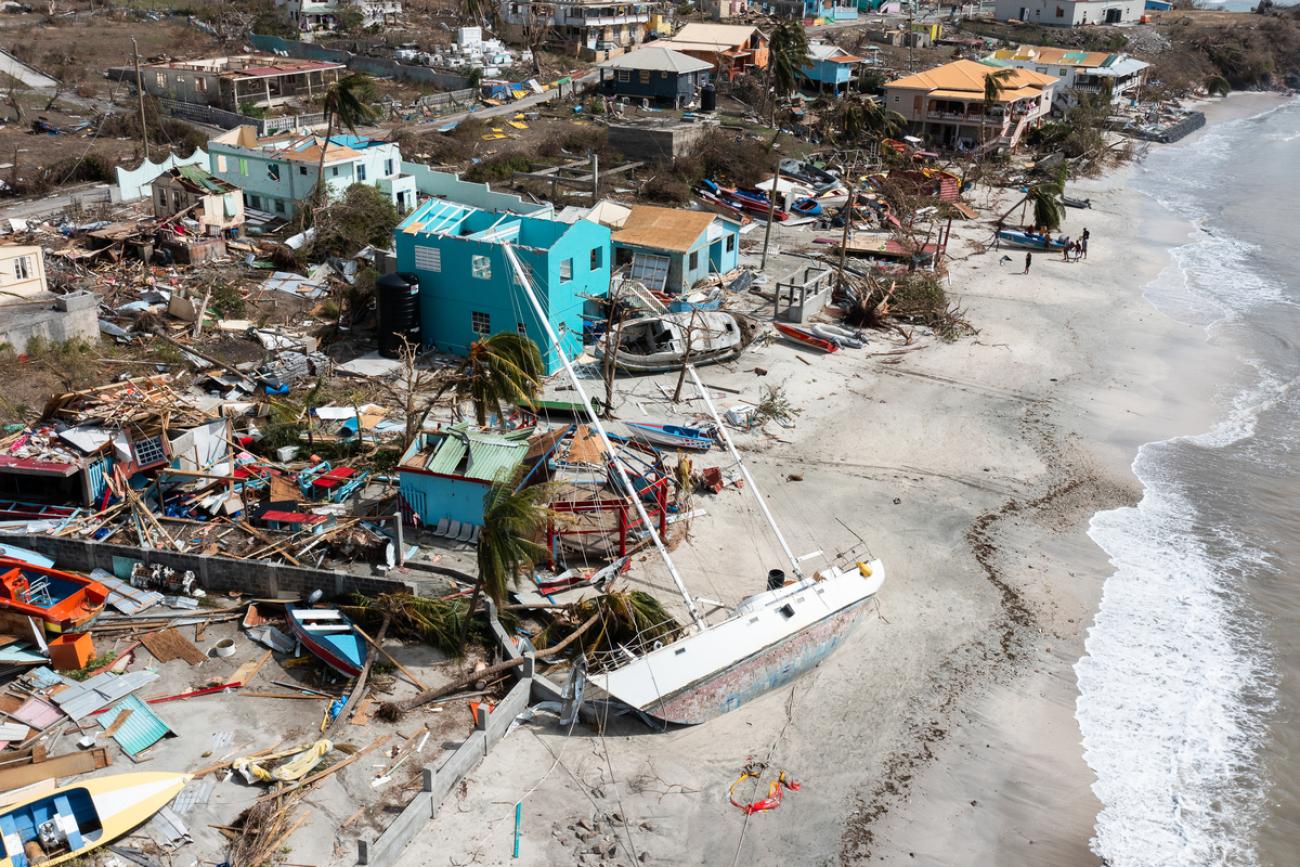
The road to recovery from Hurricane Beryl will be a “herculean task” one Minister said, urging climate justice, a call echoed by the UN Resident Coordinator.
"Carriacou and Petite Martinique have to be rebuilt from scratch."
With these stark words, Joseph Andall, Minister for Foreign Affairs, Trade and Export Development of Grenada, captured the extent of the devastation wrought by Hurricane Beryl, in opening remarks delivered virtually to a briefing at the United Nations Headquarters in New York, 19 July 2024.
Hosted by the UN Office for the Coordination of Humanitarian Affairs (OCHA), the briefing aimed to address the severe humanitarian crisis caused by Hurricane Beryl, which has left nearly 60,000 people across Grenada and Saint Vincent and the Grenadines in need of humanitarian assistance.
Hurricane Beryl struck Saint Vincent and the Grenadines and Grenada on 1 July as a Category 4 hurricane that subsequently increased to a Category 5, making it the earliest Category five Atlantic hurricane on record, according to the World Meteorological Organization (WMO).
Mr. Andall described the ongoing recovery as a “herculean task” and stressed that “we will need all the outside assistance we can get.”
The briefing, broadcast live on UN Web TV, featured contributions from senior government officials, and representatives of regional entities and the United Nations. Speakers underscored the urgent need for coordinated international support to aid the stricken communities.
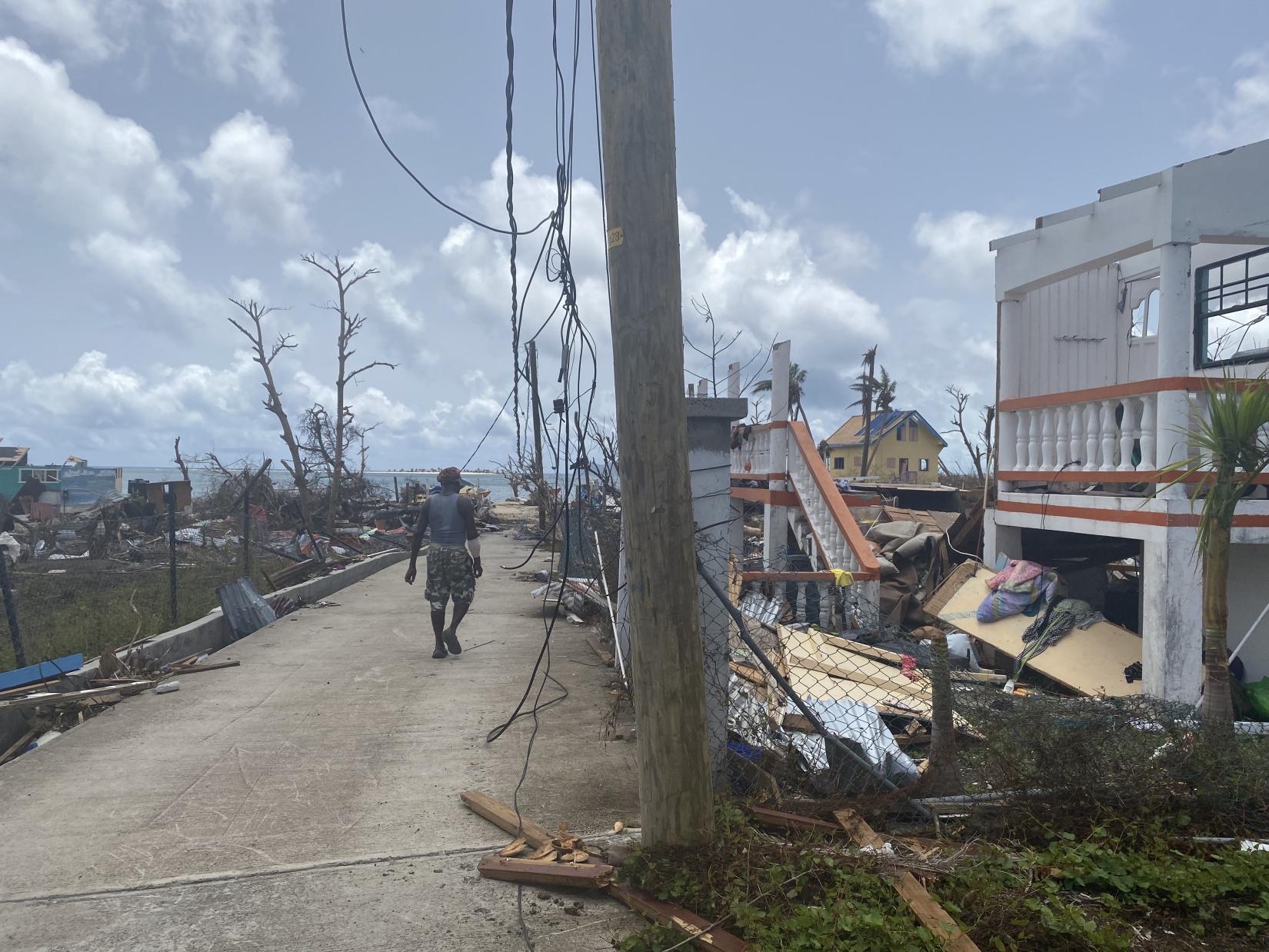
“Today's briefing is about people – people who are mothers, fathers, sons, and daughters – whose lives, livelihoods, and life paths have been disrupted, in many cases permanently,” remarked Elizabeth Riley, Executive Director of the Caribbean Disaster Emergency Management Agency (CDEMA).
Hurricane Beryl's Impact in the Eastern Caribbean
The economies of Carriacou and Petite Martinique, two islands of the Grenadian State, have been virtually obliterated by Hurricane Beryl, Mr. Andall said, pointing to substantial damage to the agriculture, marine industries, and crucial infrastructure.
"Boats, fishing equipment, mangroves, livestock, the entire agriculture sector, and the marine industry businesses, forests—almost everything in Carriacou is totally wiped out.”
Mr. Andall further stated that 98% of all buildings in these two islands and Isle de Ronde, another island of Grenada, were destroyed to varying degrees.
In Saint Vincent and the Grenadines, the impact was similarly devastating. Prime Minister, Dr Ralph Gonsalves, said that close to 10,000 houses needed repair or reconstruction, with the number growing as assessments continue.
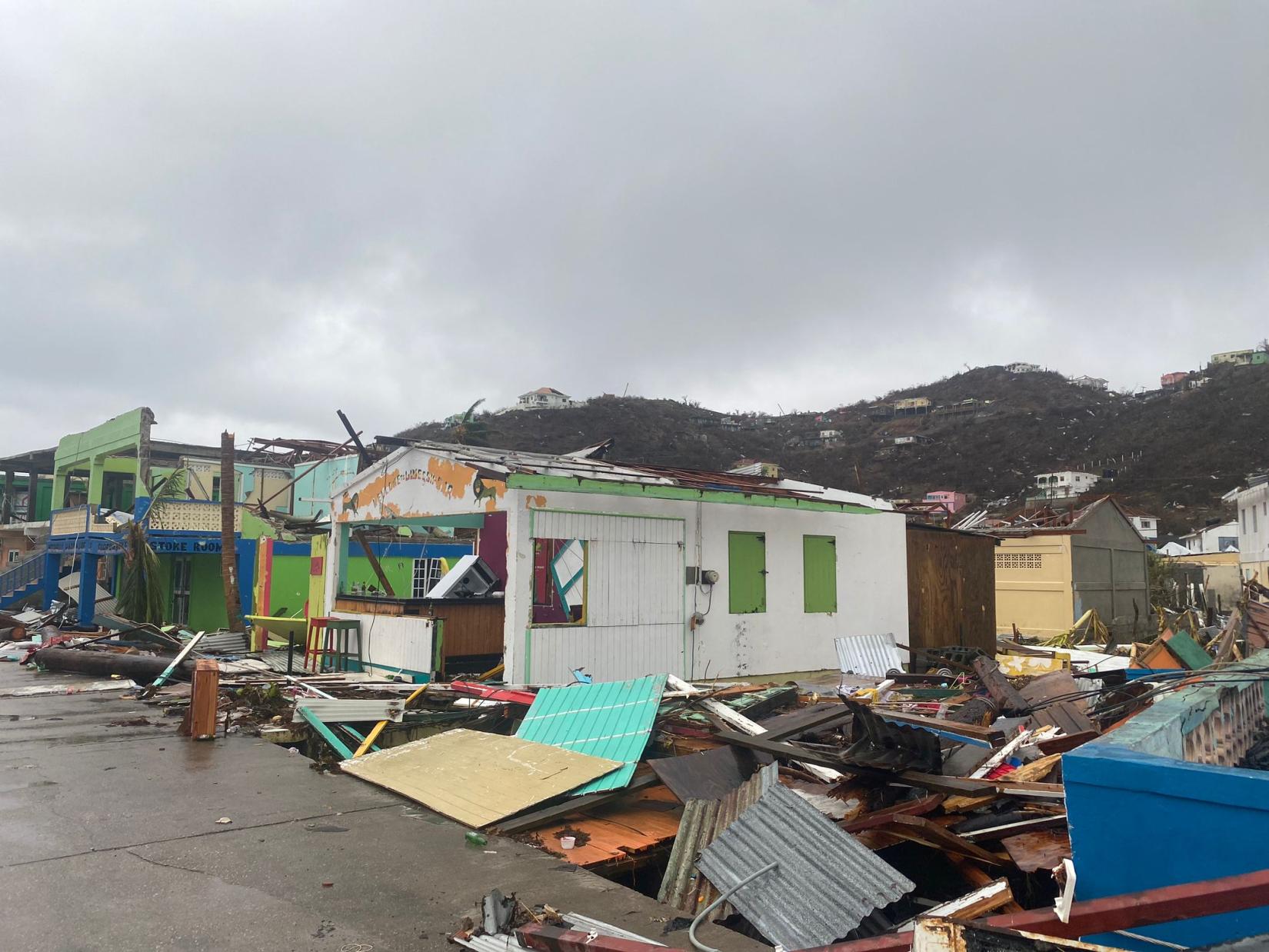
Prime Minister Gonsalves emphasized that lack of insurance coverage was a major issue, particularly on Union Island in the Grenadines, where only 79 out of 1,300 structures were insured.
He detailed ongoing efforts to restore vital services, and progress to date, stating that the situation had been stabilized: “Food, water, health – all the basic facilities – have been secured, he said, “and we are doing the cleaning up.”
Dr Gonzalves thanked the personnel of the United Nations Agencies on the ground for “remarkable” and “heroic work” in support of recovery efforts.
Restoring electricity was a slower process, however, which was still ongoing and would happen in phases in the southern Grenadines. “Union island may not have electricity until early next year,” said Dr Gonzalves.
UN Support for Regional Response on the Ground
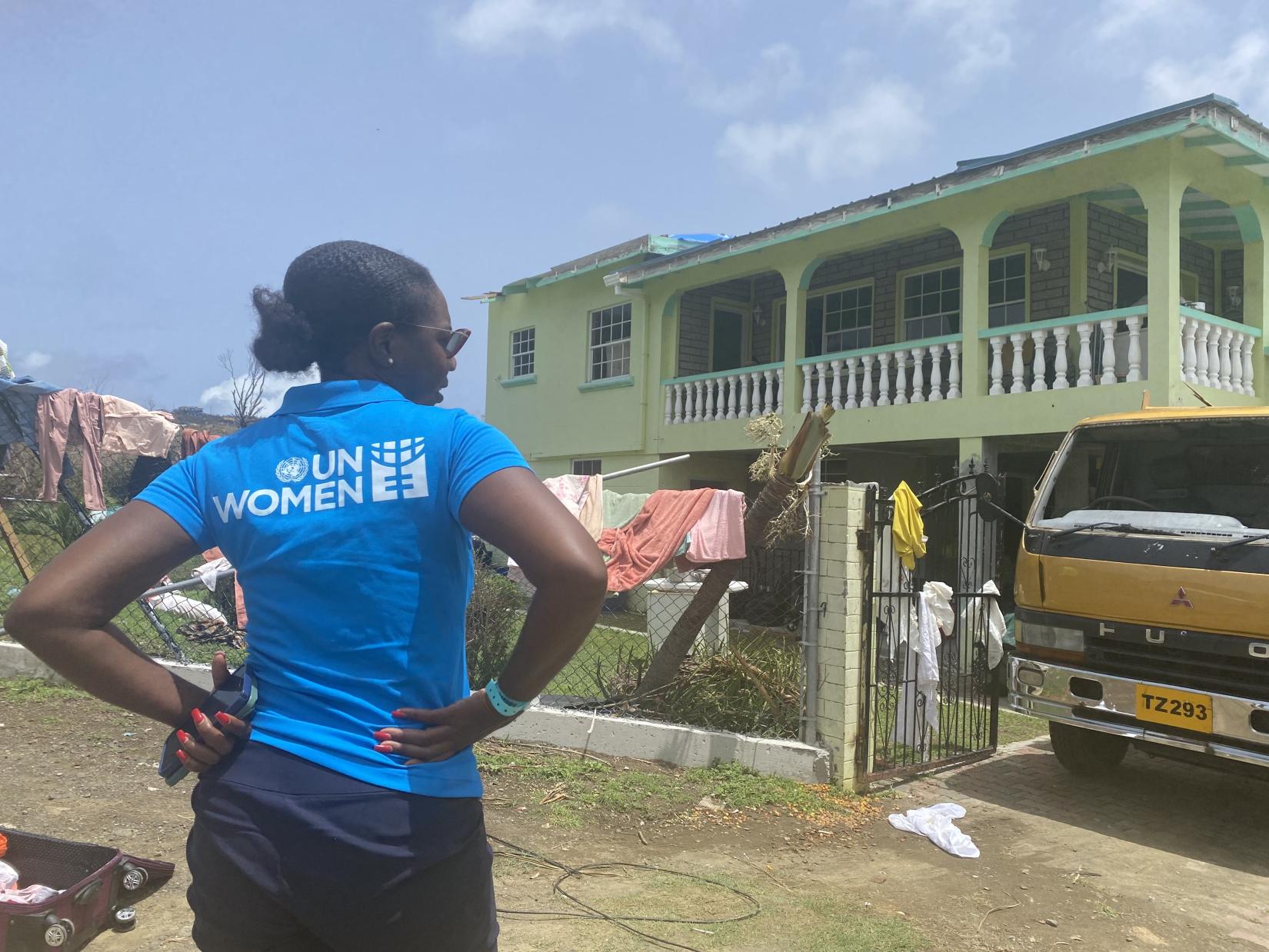
“I had the sobering opportunity to see first-hand the scale of the destruction and the immediate impacts on families and communities as I visited the islands of Union, Mayreau, Canouan, as well as the three northern affected parishes of Grenada,” noted Simon Springett, the UN Resident Coordinator for Barbados and the Eastern Caribbean.
He described how the UN and its partners had been cooperating with governments to support the immediate response to Hurricane Beryl on the ground and added that his office had also deployed “self-sustaining UN disaster coordination and assessment teams across the islands as well as debris management and waste management experts.”
The Resident Coordinator and the CDEMA Executive Director co-chair the Caribbean Development Partners Group (CDPG) —a sub-regional coordination platform for preparedness and response to disasters. Ms. Riley emphasized the importance of this partnership:
“The reality is that we can accomplish so much more working together than working apart,” she stated, thanking Mr. Springett and the UN entities he coordinates in the Eastern Caribbean for supporting CDEMA’s regional response mechanism, through which humanitarian aid and surge support has been delivered.
François Jackman, Permanent Representative of Barbados to the United Nations echoed this sentiment and praised the effectiveness of the UN Resident Coordinator system in delivering a response for the Eastern Caribbean.
“My country has been making the case here in the UN that the Resident Coordinator system and its spinoffs is one of the success stories within the UN system and within the reform of the UN system and that we must do all that we can to shore up this system give it what it needs to do the kind of excellent work that it's doing in our region right now and not allow it to suffer from the kinds of funding and resource constraints under which it's presently laboring.”
OCHA’s response plan estimates that an initial USD $9 million is needed to support humanitarian efforts. United Nations Secretary-General António Guterres has allocated USD $4 million from the Central Emergency Response Fund (CERF).
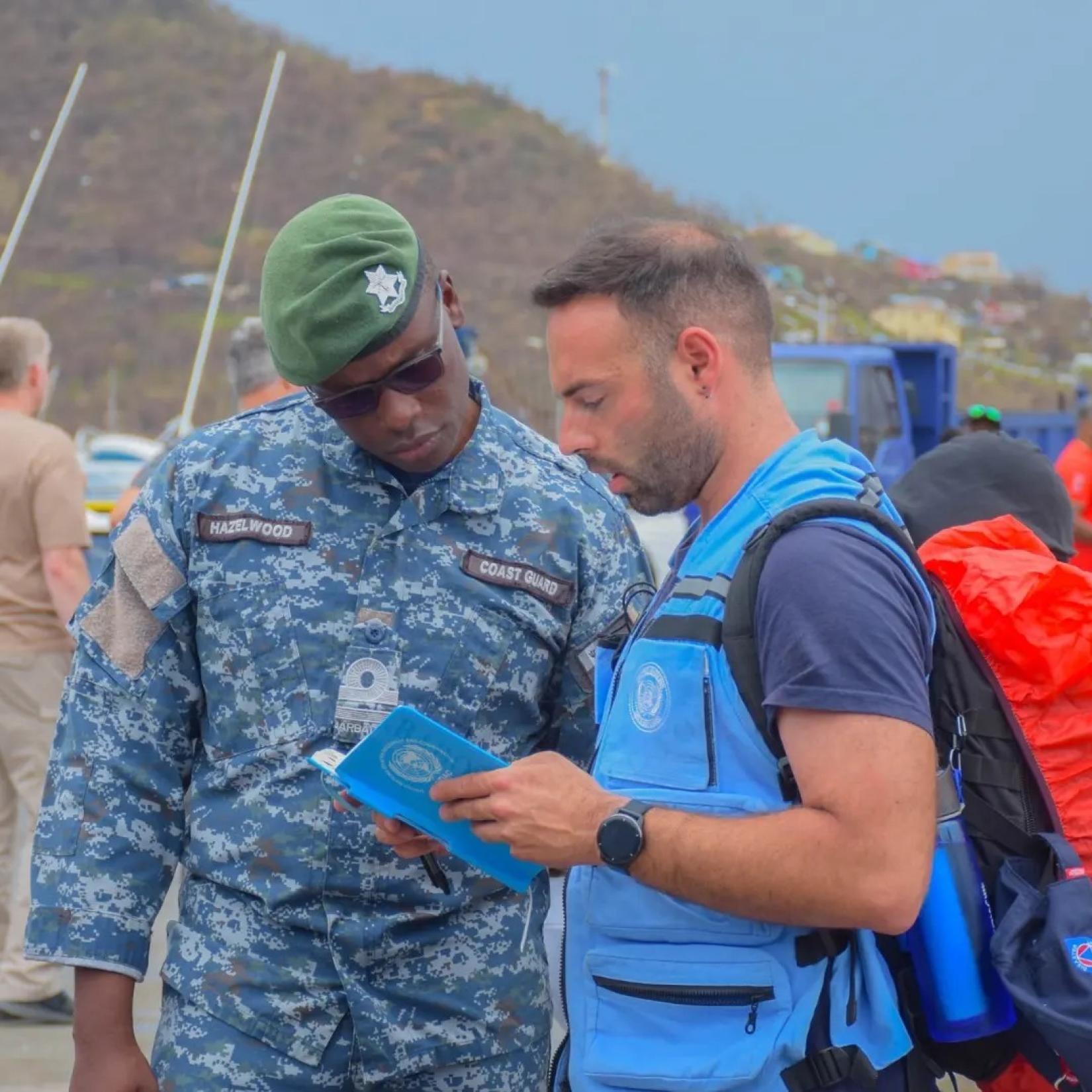
Comprehensive Recovery and Future Preparedness
“This recent catastrophic event makes clear to us, even to the doubters, that the climate crisis is not imminent, it is here, it is now, it is destructive, and it is more destructive for those who have done the least to provoke it: we the small island developing and coastal states,” said Mr. Andall.
The WMO has forecast 17 to 25 named storms for the Atlantic hurricane season — exceeding the typical 14 — with up to seven potentially developing into major hurricanes.
“Beryl epitomizes the reality of climate change and the resulting loss and damage which unfortunately is now our norm,” said Ms. Riley, adding, “it is possible for us to choose a different path.”
Mr. Andall emphasized the necessity for a systemic approach to funding and rebuilding in Small Island Developing States (SIDS) like Grenada, calling for the introduction of a system to “provide the necessary grant and concessional funding with minimal red tape.” in the wake of a hurricane or any other natural disaster.
The sentiment was echoed by Dr. Gonsalves, who further highlighted the severity of the danger for SIDS on the frontline of the climate crisis.
“We find ourselves facing extremely high public debt burdens and are caught in a spiral web of a vicious debt disaster debt cycle constantly borrowing, often at exorbitant commercial rates, simply to recover with just little time before the next hurricane or natural disaster strikes.”
A call to global solidarity
Dr. Gonsalves highlighted the resilience of the people of Saint Vincent and the Grenadines, reminding the international community of the barrage of setbacks his island nation had faced, from the COVID-19 pandemic in 2020 to 2021, to the eruption of the La Soufrière Volcano in April 2021, to Hurricane Elsa which made landfall in July of that very year. This, however, has not dimmed spirits on the island. “The people are quite hopeful, our people are quite resilient,” he said.
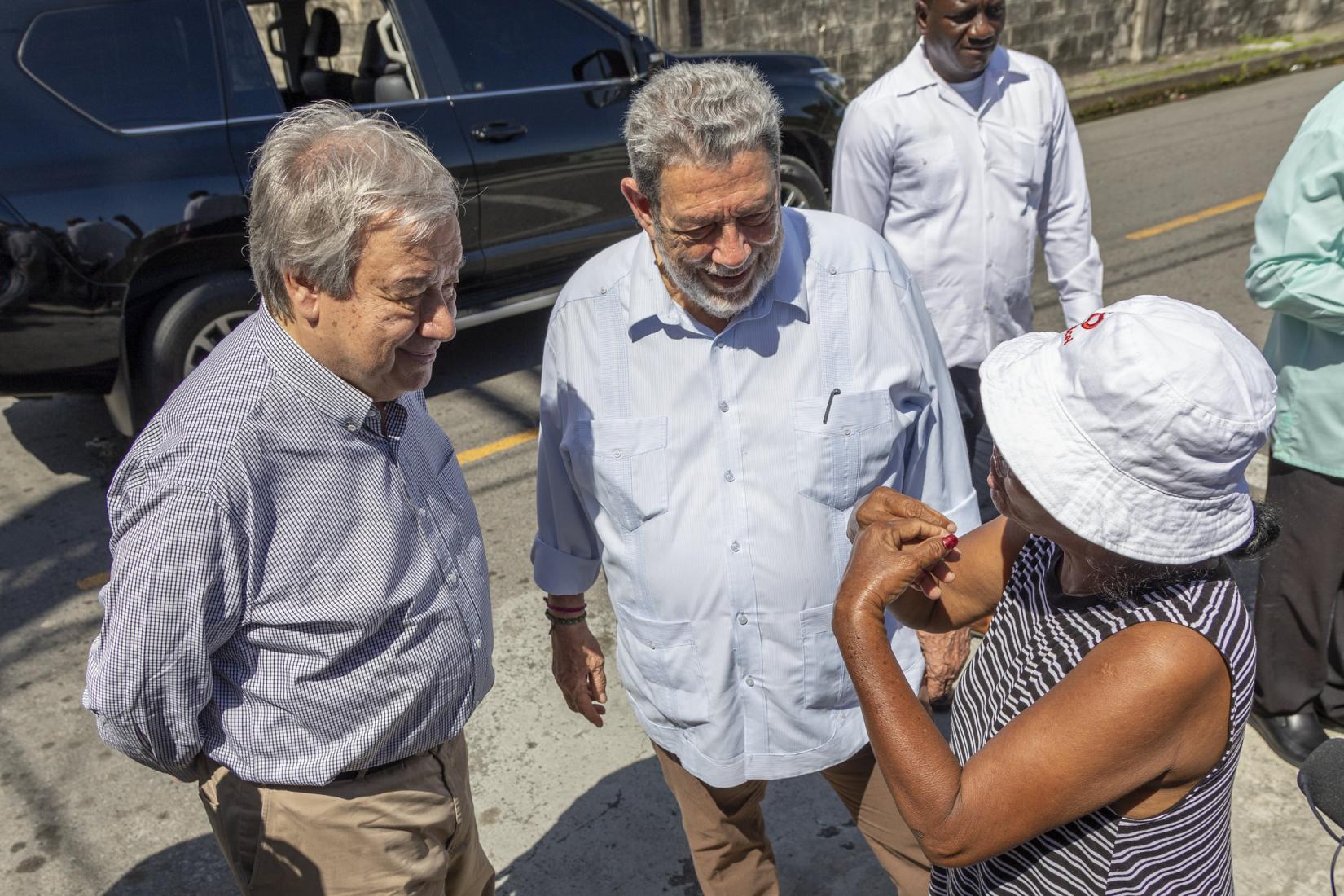
Mr. Andall spoke to “the conscience of the world,” urging solidarity towards ensuring that, “justice be done for and by these small vulnerable states.”
Resident Coordinator Springett, supported their pleas, urging climate justice.
"I would like to also stand behind the governments of both Grenada and Saint Vincent and the Grenadines in their demands for climate justice."
Ms. Riley highlighted the need for systemic change at the global level to address the recurring devastation.
"As a humanitarian and development organization, CDEMA urges the acceleration of climate action and utilizing the spaces of the upcoming Summit of the Future and COP 29 to reset this pathway."
The Summit of the Future is a high-level event taking place in September 2024 that will bring world leaders together to forge a new international consensus on how to deliver a better present for all and safeguard the future.
Written by
